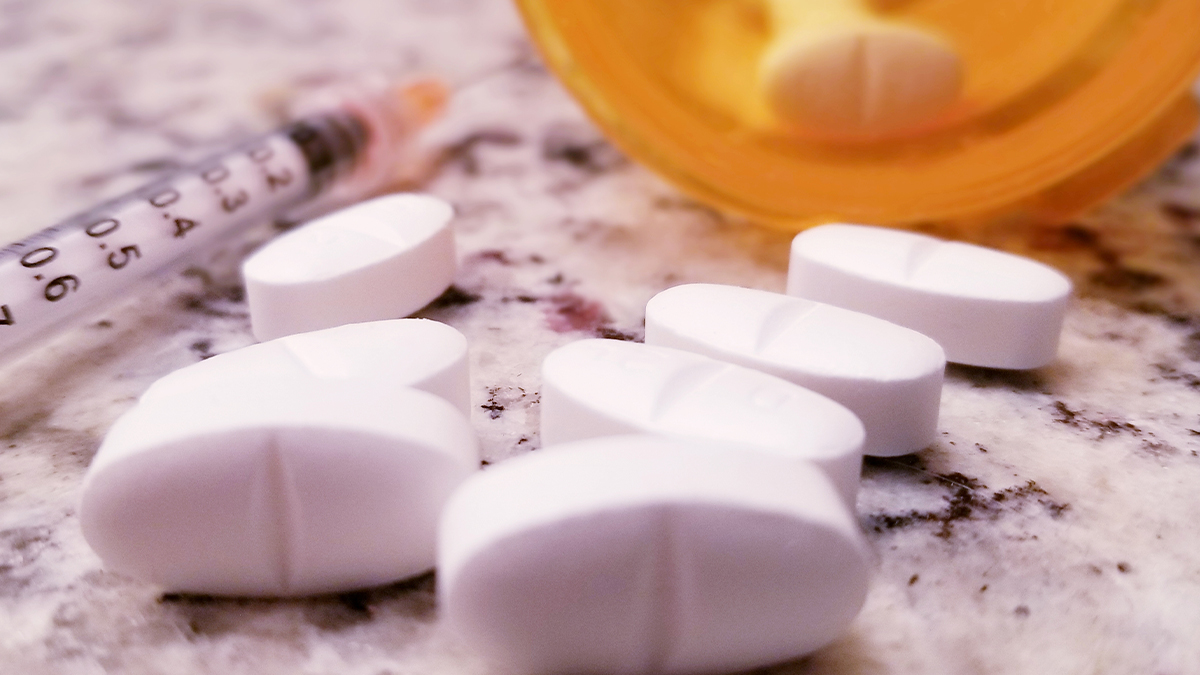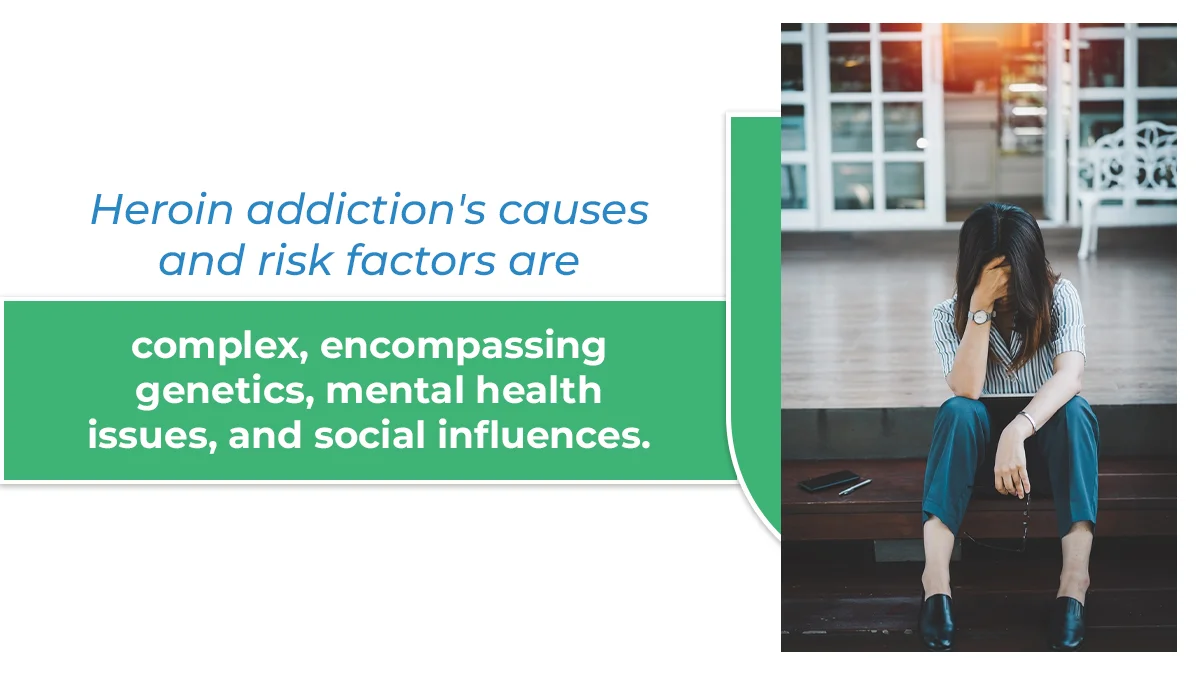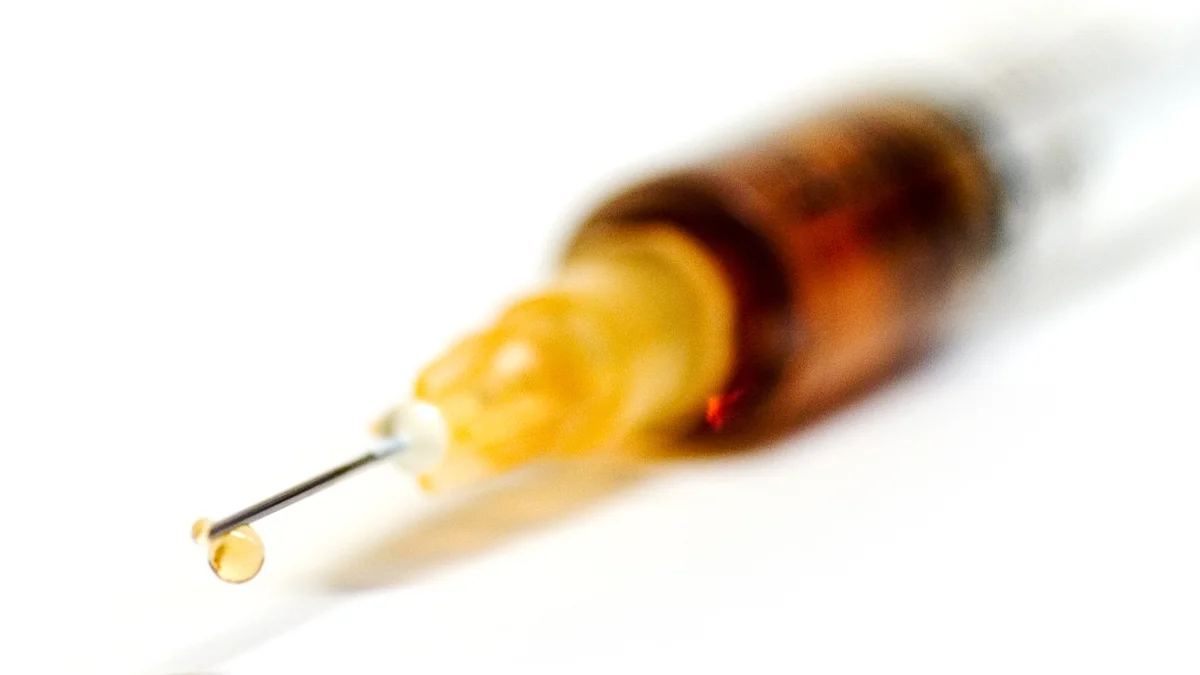
Lyrica With Suboxone: Risks And Safe Practices
The Recovery Team-Newton explores whether taking Lyrica with Suboxone is safe. Explore potential risks and guidelines

Heroin addiction treatment addresses the complex issue of heroin use disorder, which affects people worldwide. Heroin, a highly addictive opioid, often leads to severe physical and psychological dependencies. Withdrawal symptoms, such as intense cravings, anxiety, and pain, can be challenging for those with heroin addictions.
Fortunately, various evidence-based treatments exist, including medication-assisted treatment and behavioral therapies. These programs aim to reduce cravings, prevent relapse, and promote long-term recovery. They offer individuals struggling with heroin addiction hope for a healthier, drug-free life.
The treatment services for heroin addiction at The Recovery Team-Newton are designed to manage various challenges associated with heroin use. Treatment programs such as the partial-hospitalization program address its impact on individuals and their families. Heroin, acting on opioid receptors, creates powerful dependencies, necessitating specialized care.
Various treatment programs offer medications during detox, such as methadone, to manage withdrawal effects. Inpatient programs provide intensive support, including group therapy, individual counseling, and family therapy.
Heroin addiction treatment programs play a pivotal role in helping individuals regain control over their lives and achieve lasting recovery.
Heroin addiction manifests with physical and mental symptoms, causing health risks and personal turmoil. Here’s what you need to know about heroin addiction and treatment:
The Recovery Team-Newton offers a range of programs for heroin addiction recovery. Call us at (508) 978-2772 today.
Heroin addiction is a serious and complex issue with various symptoms and outcomes. Individuals struggling with this powerful opioid may exhibit physical changes, including:
The psychological signs of heroin addiction are often profound, such as:
Moreover, heroin abuse can lead to a range of health problems, including infectious diseases like HIV and hepatitis from shared needles, as well as an increased risk of heroin overdose. Prolonged heroin use can result in permanent brain damage and affect one’s ability to think clearly and make sound decisions.
Recognizing the signs of heroin addiction is crucial. If you or someone you know is experiencing these symptoms, seeking heroin treatment is compulsory. It’s important not to delay, as heroin addiction can lead to severe health and social consequences. Early intervention can help prevent the escalation of the addiction and its associated risks.
If you suspect a loved one is struggling with heroin addiction, it’s essential to approach them with care and concern. Encourage them to seek professional help and offer your support in finding appropriate treatment options.
Remember that addiction is a medical condition, and compassionate, non-judgmental support can make a significant difference in a person’s recovery journey. Motivate them to seek help and offer assistance in exploring treatment programs or locating addiction specialists to guide them toward a path of recovery.
Heroin addiction is an intricate issue influenced by a variety of factors. Understanding the underlying causes is essential for effective prevention and treatment. Several key contributors include:
Certain individuals might have genetic predispositions that make them more likely to become addicted to drugs like heroin. Specific genetic differences can affect how nerve cells in the brain react to synthetic opiate drugs and other illegal substances, influencing a person’s chances of getting addicted.
Being around drugs or using them at a young age can increase the risk of addiction. Trying substances early, especially powerful ones like heroin, might make the brain more likely to get addicted.
This exposure can set the stage for later addiction issues. Heroin addiction often begins with recreational use or the misuse of drugs, leading to the emergence of physical symptoms and powerful cravings.
Co-occurring mental health issues, such as depression, anxiety, or trauma, are often intertwined with heroin addiction. Individuals may turn to heroin as a way to self-medicate or cope with emotional pain. Environmental factors, such as high-stress surroundings or exposure to criminal activity, can worsen mental health issues. These factors also play a role in the development of heroin addiction.
Heroin addiction is a devastating issue influenced by a range of risk factors. Understanding these factors is vital for prevention and intervention efforts. Several key contributors include:
The influence of friends and peers is a potent factor in the development of heroin addiction. Many individuals initiate heroin use due to social pressures or a desire to fit in with a particular group.
Friends who use heroin can normalize the behavior and encourage experimentation, making it challenging to resist. The risk of opioid dependence can increase significantly when one’s social circle includes people who use opioids.
Socioeconomic status can also play a role in the risk of heroin addiction. People from less fortunate backgrounds might be at a higher risk because they don’t have as many chances for education and jobs. When life is tough financially, and they feel left out, some people may use heroin to cope or escape their problems.
A shortage of access to healthcare services, particularly for addiction treatment and harm reduction, contributes to the risk of heroin addiction. Without proper medical support and resources, individuals facing addiction may struggle to find the help they need to overcome their challenges and achieve lasting recovery.
Heroin, an addictive drug derived from morphine, profoundly impacts individuals. Its use alters heart rate, breaches the blood-brain barrier, and leads to lifestyle changes. Understanding its effects on individual needs is crucial in addressing substance abuse and its pervasive consequences.
Heroin significantly depresses heart rate, slowing the body’s vital functions. Its initial rush elevates heart rate before causing a dangerous decline. Prolonged use can result in irregular heartbeats, leading to severe cardiovascular issues and potential fatalities, impacting overall health and well-being.
The drug swiftly crosses the blood-brain barrier, inducing rapid and intense effects on the central nervous system. Heroin’s chemical structure allows it to penetrate this barrier, causing an immediate rush of euphoria and relaxation. It also influences cognitive functions, emotions, and decision-making ability, contributing to addictive behavior.
Heroin use prompts profound lifestyle changes, often at the expense of individual needs. Such individuals prioritize the drug over personal responsibilities, relationships, and health. The addiction fosters a harmful cycle, leading to social isolation, financial strain, and neglect of crucial obligations, disrupting the balance in one’s life.
Heroin addiction can be a challenging battle, but a variety of effective treatments are available to help individuals regain control of their lives and overcome this substance use disorder. Here are some of the key treatment options:
Inpatient programs offer extensive medical support and care, typically starting with the detoxification stage. Patients reside in treatment facilities under medical supervision, engaging in a structured treatment plan, ensuring a supportive environment to address the long-term effects of substance use disorder.
An outpatient treatment program is a valuable option for individuals seeking help with addiction. Moreover, they maintain a more flexible schedule and the ability to continue with their daily life responsibilities.
Outpatient treatment allows individuals to live at home and continue their regular routines, such as work, school, and family obligations. This flexibility can be crucial for those who cannot commit to an inpatient program.
Medication-assisted treatment programs combine medication with therapy to address heroin addiction. Health care providers administer medicines under medical care to manage withdrawal symptoms and cravings, supporting the individual in their journey towards recovery and a return to everyday life.
Cognitive-behavioral therapy, dialectical behavior therapy, and holistic therapy are effective ways to complement the detoxification process. These processes focus on individual therapy and addressing underlying issues contributing to addiction, promoting sustained recovery and the development of coping mechanisms.
Are you or a loved one battling heroin addiction? Discover hope and support at The Recovery Team-Newton. We understand the challenging journey of addiction and offer a range of services tailored to meet your needs.
Our outpatient program provides flexibility and guidance for those balancing everyday life. For a more concentrated approach, our intensive outpatient program offers structured and comprehensive care. Additionally, our medication-assisted treatment aims to alleviate withdrawal symptoms and cravings.
Let us stand by your side in this journey towards a sober life. Call us at (508) 978-2772.
The most common form of treatment for opioid dependence is medication-assisted treatment (MAT). MAT combines the use of medications, such as methadone, buprenorphine, or naltrexone, with counseling and therapy to help individuals manage their opioid dependence, reduce cravings, and work toward recovery.
Methadone is primarily used as a long-acting opioid medication in the treatment of opioid dependence. It helps reduce withdrawal symptoms, cravings, and the euphoric effects of opioids, allowing individuals to stabilize their lives and engage in comprehensive addiction treatment programs.
Heroin addiction treatment typically involves assessment, detoxification, therapy (individual and group counseling), medical supervision, and support services. The specific approach may vary based on the chosen treatment setting, such as inpatient or outpatient programs, and should be tailored to the individual’s unique needs and circumstances.

The Recovery Team-Newton explores whether taking Lyrica with Suboxone is safe. Explore potential risks and guidelines

Learn about Suboxone injection side effects and explore recovery solutions in this guide by The Recovery Team-Newton.